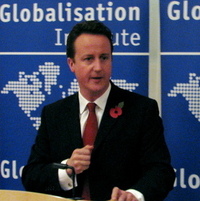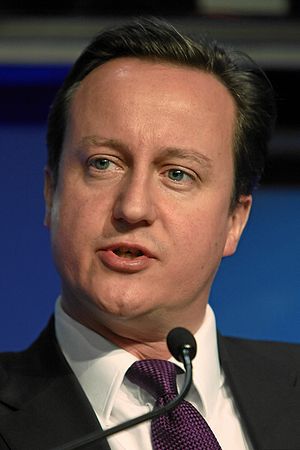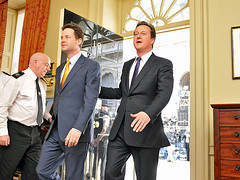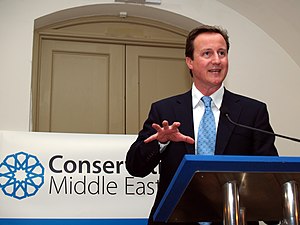By Paul Canning
As the jostling starts on exactly who will form a British government we have no idea who will be the MP(s) ending up with the key Ministries holding the fate of asylum seekers in their hands.
If we have a coalition government with mostly Conservative Ministers we could end up with a gay Home Secretary. There were many rumours after Tory Shadow Home Secretary
Chris Grayling made his ill-fated and off-camera (but not off-microphone) comments on gays and Bed'n'Breakfast hotels that
Nick Herbert might replace him. It wasn't Grayling's first 'gaffe'.
The precedent of Labour's silent gay and lesbian MPs would suggest that just because they're LGB they cannot be relied on to stick up for LGBT asylum seekers, but the Conservatives went into Thursday's election making a late pitch via an 'equalities manifesto'
that promised to "change the rules" on LGBT asylum.
Labour didn't, and manifesto commitments are serious business. During the campaign my articles on Labour's record drew strong attacks, including
from the gay MEP Michael Cashman, that suggested that - somehow - Labour would be better than the mistrusted Tories on LGBT asylum. But despite their lesbian and gay group passing a resolution promising to work on the issue nothing made it onto the actual promises list beyond vague claims, and
the record speaks for itself. The
UKLGIG study released in the middle of the election proved once-and-for-all that the system they'd managed is riddled with homophobia, how they might tackle it was a complete mystery.
And Labour ended the campaign with Gordon Brown
making sickening comments on the pogrom in Iraq, suggesting that Iraqi gays are better off because of his government's actions and refusing to answer on how come it thought Iraq a 'safe country' to return gay asylum seekers to.
Of course the Iraq war supporting David Cameron would have had to say something similar, though possibly differently on the asylum aspect. But the Tory promise to 'change rules', plus what issue it highlighted which Labour consistently either refused to address ('go home and be discrete') or denied was a policy, plus Cameron's
answer to my question which was a non-pat answer showing someone in Conservative Central Office was paying attention and reading about the issues can not but give hope - especially when the 'on side' LiberalDemocrats look to be playing a government role.
Another aspect to their credit is that when Cameron
made a brief comment suggesting that they shouldn't be returned and told to 'be discrete' the right-wing mass tabloid newspaper the Daily Mail managed to translate this into "Cameron: Gay refugees from Africa should be given asylum in UK". This racist spin (he never mentioned Africa) lit up the far right blogosphere but the Mail's reaction - showing they were paying attention - didn't scare the Tories into not putting a pledge in a manifesto.
A number of LiberalDemocrat MPs who now may have some real power have long 'walked the walk' on LGBT asylum. Especially Simon Hughes who has
showed up and backed Peter Tatchell and Outrage's many years of lonely campaigning. During the campaign Lynne Featherstone
showed real understanding, saying: "we need to go further, and use our significant influence abroad to end this persecution because for every person that manages to flee - there [are] undoubtedly many more living in fear unable to escape."
But so have a number of Tories. During the campaign for gay Iranian Mehdi Kazemi several years ago the strongest supportive and condemnatory comments came from London's Conservative MEP John Bowis. In Parliament the Tory MP Alistair Burt who has the notorious Yarl's Wood detention centre in his constituency has been relentless is
asking probing questions and damning the regime there.
The election also saw a number of new MPs who can be expected to be supportive.
Belfast Mayor and new Alliance party MP Naomi Long, who dramatically beat arch-homophobe and Northern Ireland First Minister Peter Robinson, is a long standing
advocate for refugees, migrants and asylum seekers.
The Greens first MP, Caroline Lucas, has worked for LGBT asylum seekers throughout her term as an MEP and
her party has strong policy.
Asylum advocates worked to ensure that candidates were educated and asked to commit on the issues.
Over 1000, from all parties, signed a pledge to "remember the importance of refugee protection." Many of those were elected yesterday.
UK LGBT advocates have been discussing how to proceed, how to secure change. Exactly how we'll do it cannot be announced yet - watch this space! - but the election seems to have thrown up the greatest hope for real, meaningful change to our appalling regime we've seen in - oh - thirteen years.

















![Reblog this post [with Zemanta]](http://img.zemanta.com/reblog_e.png?x-id=4f0226ff-d77a-46ec-9a8f-8ea1cd0c2b06)


![Reblog this post [with Zemanta]](http://img.zemanta.com/reblog_e.png?x-id=6677b80b-2056-4efb-81cd-02771ef83870)






 Join our page
Join our page

